Abused Indonesian domestic helpers in Hong Kong write script for new film on migrant worker’s life
- ‘Dea (Migrants Built This City)’ is the story of a woman who leaves her home and family in rural Indonesia to work as a foreign domestic worker in Hong Kong
- It will show at the Hong Kong Arts Centre on October 21; director Alberto Gerosa is looking to host more screenings, but finding support has been tough

On October 21, Hong Kong gets its first screening of Dea (Migrants Built This City), the story of a woman who leaves her home, family and friends in rural Indonesia to work as a foreign domestic worker in Hong Kong.
It’s a storyline that will resonate with the city’s 400,000 migrant workers, most of whom come from the Philippines and Indonesia.
For some, life in their adopted city will entail long working hours, tough conditions and dubious contracts, all compounded by a lack of visibility.
Dea, played by Indonesian actress Dea Panendra (best known for her role in the 2017 thriller Marlina the Murderer in Four Acts and the 2019 action/sci-fi Gundala), suffers abuse at the hands of her employer, but her dreams of becoming a singer keep her strong.
Hong Kong-based director Alberto Gerosa says it was vital to make a film that took domestic workers out of the shadows and into the role of protagonists.
“Domestic workers in Hong Kong are 5 per cent of the total population and 10 per cent of the workforce,” Gerosa says.
“They are important for the local society, for the local economy, for how families are sustained with both parents working, but despite all this have very few positive appearances in the local media.”
The film, which will screen at the Louis Koo Cinema in Wan Chai’s Hong Kong Arts Centre on October 21, struck a chord with Indonesian Judy Houyai. She was a victim of sexual and verbal abuse while working as a domestic helper in Hong Kong more than a decade ago.
“When a woman experiences violence and sexual harassment, she falls into a situation that is truly broken and unstable,” says Houyai, who goes by her nickname and not her real name.
“They are vulnerable and need a place to talk and be heard.”
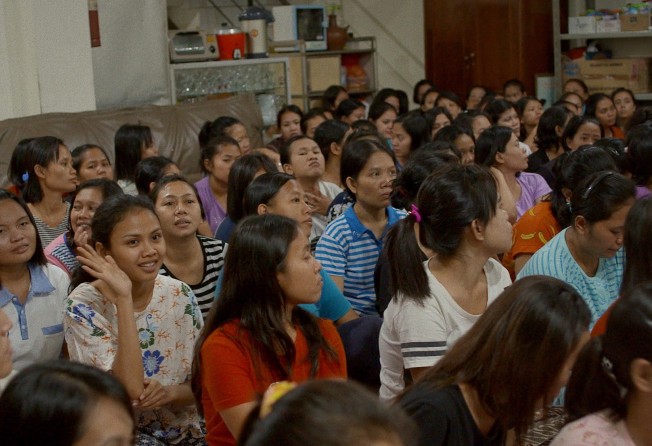
Houyai found that place thanks to the film’s scriptwriting process: it was written over nine months by Indonesian migrant workers who were victims of domestic violence. She also landed a role in the film.
“The first time talking about my experiences and recalling those memories was hard,” she says. “But over time it got better and I now appreciate the chance to speak out.”
As an Italian living in Hong Kong, Gerosa is fully aware that the film, his debut feature, was not his story.
“As a non-woman, a non-Indonesian and a non-domestic worker, I couldn’t come up with the script myself – that would be too imposing,” he says.
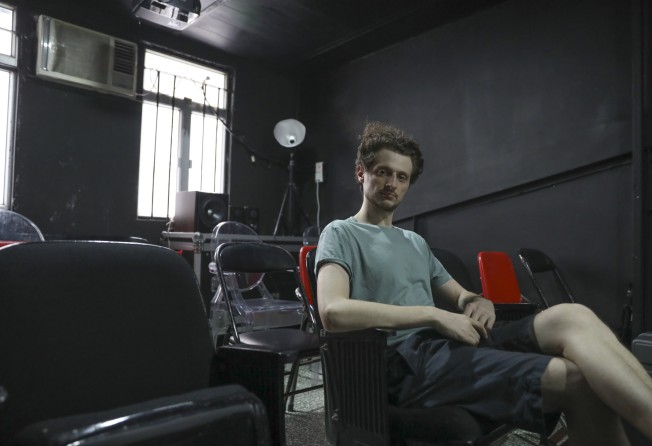
For inspiration, he turned to the late Brazilian theatre director Augusto Boal, who invented “Theatre of the Oppressed”, a form of interactive theatre intended to transform lives as spectators become performers, acting out solutions to social problems.
“This method gives people in the group a chance to share their stories so they can release the insane stress that they bear and also bring their message to the rest of the society – and to be in control of the narrative,” says Gerosa, who is also an adjunct assistant professor in anthropology at the Chinese University of Hong Kong.
“I was just a facilitator for these grass roots organic stories so they could find the audience they deserve.”
Every Hong Kong film festival refused the movie, saying it is not a local movie, it is not in Cantonese, there are no local people in the cast or crew, there is no famous actor … It was very sad
Gerosa says more than 60 women attended the workshops, where they were asked to share a significant moment from their migration story.
The responses were both heartbreaking and heartwarming.
“There was a woman who returned to Indonesia after working in Hong Kong for years, only to find her daughter did not recognise her,” he says. “Another woman sent money home over many years but her husband had spent it on a house with his lover.
“We shared stories, diaries [and] pictures, and these materials that were created, crafted and acted out by the group became the final script.
“Everything was done orally because we were in this strange border between broken Cantonese, broken Indonesian and broken English, so in this linguistic space, we kind of found a compromise, which is the movie.”
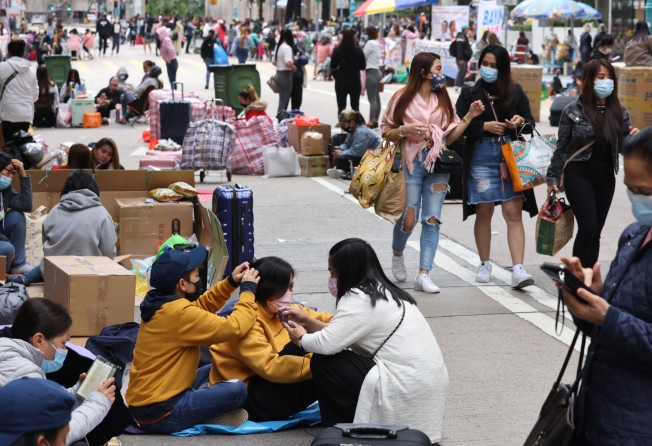
Drawing attention to under-discussed issues was also part of the film’s plan.
“Any NGO in the city will tell you that the main obstacles domestic workers face is that they can never get permanent residency and, of course, their low salary,” Gerosa says. The minimum allowable wage of foreign domestic helpers in Hong Kong is HK$4,730 (US$600) per month.
Precarious contracts that tie workers to an agency, and often leave them in debt, are also covered in Dea.
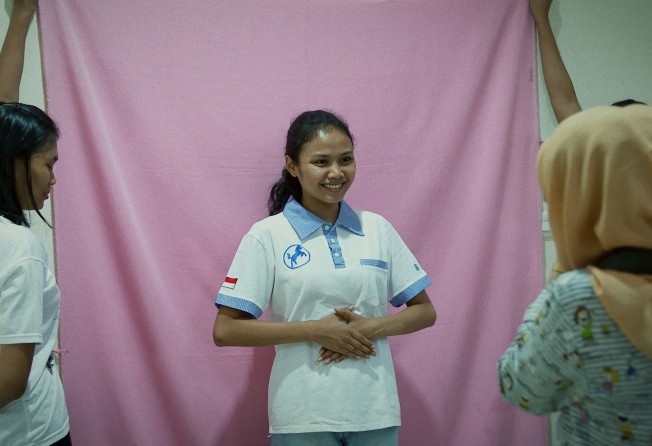
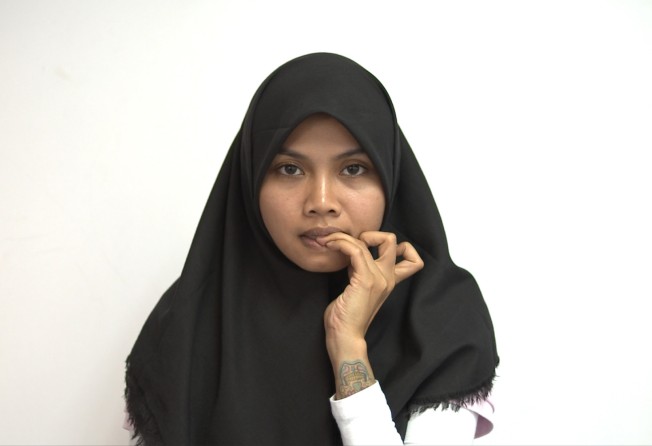
While Gerosa is eager to spread these messages, finding distribution support has been tough.
“Every Hong Kong film festival refused the movie, saying it is not a local movie, it is not in Cantonese, there are no local people in the cast or crew, there is no famous actor … It was very sad.
“Dea, who was chosen by the group, is a talented actress who became famous when she was young after participating in Indonesian Idol, and then she became a famous musical theatre actress.
“It was important to have an empowering story so people didn’t feel victimised … Dea had big dreams and goals of becoming a singer.”
Also in the film is Italian actor Bruno Zanin, known for his role in Federico Fellini’s 1973 film Amarcord.
Gerosa is now looking for a venue to host more screenings. “We want Sunday screenings so domestic workers can watch it. Every other day of the week they are working.”
Houyai, who says the situation for domestic workers in Hong Kong has gotten better over the years, hopes the film will improve it further and help women speak out.
“Experiencing violence and sexual assault often leads to problems that can be even more complex or sometimes fatal,” she says.
“For migrant workers experiencing them in a foreign country requires a more holistic approach because of the many barriers that come with even a ‘normal’ life, such as languages, cultural sensitivity, legal understanding, relational power imbalance.
“For friends experiencing these, don’t be afraid or sad, because you are not alone. There are still many good-hearted people who will be ready to help on your journey of restoring your confidence.”
Dea (Migrants Built This City), Oct 21, 8pm, Louis Koo Cinema, Hong Kong Arts Centre, 2 Harbour Rd, Wan Chai. The screening will be followed by a Q&A with the director.